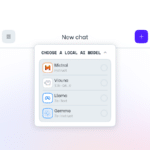The changing face of the cybersecurity market [Q&A]

The cybersecurity world is a fast changing one with a constant arms race between attackers and defenders.
New entrants are always coming to the market with innovative technologies to solve particular problems. We spoke to Justin Somaini, a partner at cybersecurity venture capital firm YL Ventures, to find out more about up and coming security trends and shaping the future of cybersecurity.
Businesses turn to generative AI but many don't have policies on it

According to a new report, 93 percent of security leaders say public gen AI is in use across their respective organizations, and 91 percent report using gen AI specifically for cybersecurity operations.
But the study of more than 1,600 security leaders, from Splunk and Enterprise Strategy Group, shows that despite this high adoption 34 percent of surveyed organizations say they don't have a gen AI policy in place, and 65 percent of respondents admit to not fully understanding the implications of the tech.
Microsoft and Estée Lauder transform the beauty industry with AI

Today, Estée Lauder Companies (ELC) and Microsoft unveil their latest initiative: the AI Innovation Lab. This venture builds on their ongoing global partnership, aiming to harness generative AI capabilities from Microsoft’s Azure OpenAI Service to revolutionize ELC’s portfolio of over 20 prestige brands.
This collaboration is designed to foster closer consumer relationships and accelerate product launches with a focus on local relevance, highlighting the companies’ commitment to leading the charge in the digital transformation of the beauty industry.
New tool lets enterprises build their own secure gen AI chatbots

Many companies have blocked access to public LLMs like ChatGPT due to security and compliance risks, preventing employees from taking advantage of the benefits of generative AI for day-to-day use.
Even when employees do have access, mainstream LLMs lack the ability to query an organization’s internal data, making insights unreliable and considerably limiting enterprise value for chat applications.
CISOs worry about gen AI leading to security breaches

A new survey of more than 400 CISOs in the US and UK reveals that 72 percent are concerned about security breaches related to generative AI.
The study from Metomic finds that CISOs from both the US and UK rank data breaches as their top security concern. Data breaches are continuing to surge across industries, but particularly for healthcare, finance, and manufacturing organizations. According to industry reports, US companies experienced 3,205 data breaches last year (up from 1,802 in 2022), with the average cost of a data breach in the US climbing to $9.48 million in 2023.
The AI advantage: Navigating the future of procurement with Generative AI

Generative AI (Gen AI) is no doubt the new “white hot” technology, with tremendous potential for transforming Source-to-Pay processes. In fact, AI can deliver cost savings of up to 40 percent according to research by Oxford College of Procurement & Supply. With its widespread adoption and inclusion in digital transformation initiatives across every industry, Gen AI has become a must-learn technology. It has the potential to improve productivity of Procurement teams tremendously to eliminate time consuming and repetitive tasks and free up time for more strategic thinking. In fact, Gen AI can reduce time spent on some procurement processes by up to 60 percent.
This enables Procurement teams to elevate their strategic impact and spend time on more creative aspects of the function that have a bigger impact.
Why the cybersecurity industry needs to re-frame the AI debate [Q&A]

Conversations around artificial intelligence and the threat it poses to humanity have been building for years. The launch of ChatGPT (or generative AI) nearly a year ago thrust the issue to the forefront of the global agenda.
Discussions have reached such a fever pitch that in April this year, technologists including Elon Musk signed an open letter begging AI teams to pause development. Despite it being widely condemned, the letter underscored how seriously the world is considering AI risks.
Why you should worry more about SaaS than generative AI [Q&A]

There's a lot of talk at the moment about how the use of AI opens up businesses to additional risk. But is AI itself the issue or is it the way in which it's integrated with other applications?
We talked to Ran Senderovitz, chief operating officer of Wing Security, to discuss how enterprises need to re-prioritize their security to address the real attack surface, the SaaS apps that leverage AI.
Gen AI's pitfalls and why the business impact remains stagnant

No technology, especially in its early adoption phase, is without fault. Even with the popularity generative AI has gained in both the eyes of businesses and consumers alike, its imperfections cannot be glossed over. Hallucinations and biases in training data, among other issues, are leading business owners to hesitate when considering adoption.
While some early adopters have found ways to adopt large language models (LLMs) as they exist today, many feel they are left with essentially two options. Wait until improvements come or governmental guidelines are put in place to ensure the safe use of the technology, potentially being left behind, or adopt now and without letting AI touch business-critical systems. Neither of these options is truly viable, so where can businesses go from here? Diving below the surface coverage of gen AI to understand both its pros and cons will help modern businesses to determine where they can safely implement LLMs tomorrow.
Innovation and security: The challenges of Generative AI for enterprises

Despite what some might think, no, bots probably won't come looking for your job, but they may well attack your intellectual property. Generative AI (GenAI) has become a transformative technology for businesses in more ways than one.
In 2024, its widespread adoption will undoubtedly have an impact on organizations across all industries, resulting in increased productivity and efficiency. However, GenAI can be a double-edged sword. Organizations need to tread carefully when assessing organization security risk, especially when it comes to data protection.
Will the conversational web see the end of tech giants' app stores? [Q&A]

The rise of generative AI platforms like ChatGPT has brought us a step closer to a 'conversational web' where it's possible to find information and access services without needing an app.
This could potentially mean the end of app stores from the likes of Apple and Google and disrupt the whole app ecosystem.
Opera One web browser enhances AI capabilities: Adds local Large Language Models (LLMs) in developer stream

Opera has announced a huge AI update to its Opera One web browser in the developer stream. The company is introducing experimental support for 150 local Large Language Models (LLMs) across approximately 50 different model families. This innovative feature allows users to easily access and manage local AI models directly from the browser, a first in the industry.
The supported local LLMs include notable names such as Llama from Meta, Vicuna, Gemma from Google, Mixtral from Mistral AI, among others. The inclusion of local LLMs means that users can now leverage generative AI capabilities without the need to send data to external servers. This ensures that user data remains on the device, enhancing privacy and security.
Accepting generative AI into enterprise software development [Q&A]

The development community has been quick to embrace generative AI for its productivity potential. But at the same time it raises concerns for enterprises around IP/ownership, security, compliance and more.
We talked to Steve Martinelli, director of developer advocacy and community at Equinix, to discuss the similarities between GenAI and open-source software's acceptance journey, and how we might tackle the unique challenges it presents.
How conversational AI is shaping customer service [Q&A]

Conversational AI has seen great advances and a massive increase in adoption in the last year or so such that it’s increasingly finding its way into our everyday lives.
We spoke to voice AI industry expert PolyAI's co-founder and CEO, Nikola Mrkšić, to discuss how the technology is shaping customer service and reducing costs, as well as where generative AI tools fit into the picture.
Malwarebytes adds AI to its business security offering

Malwarebytes is adding an AI feature to its Security Advisor, part of the ThreatDown tool aimed at helping IT teams make better use of their resources.
Using generative AI technology, the new capabilities transform Security Advisor into a dynamic experience that allows customers to use simple natural language requests to search for information about their environment, ask for recommendations on how to optimize their security posture, automatically implement updates, and more.
Recent Headlines
Most Commented Stories
BetaNews, your source for breaking tech news, reviews, and in-depth reporting since 1998.
© 1998-2025 BetaNews, Inc. All Rights Reserved. About Us - Privacy Policy - Cookie Policy - Sitemap.